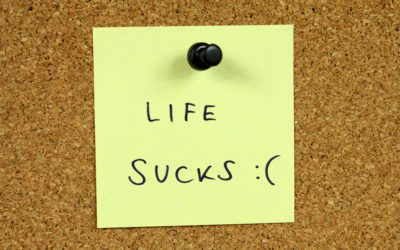I spent the past couple of days in New Mexico with seven extraordinary coaches from a number of different coaching schools, most with over 20,000 coaching hours logged and with clients ranging from Google to Nasa and from the US military to the US congress. (To put it in perspective, I’ve been coaching for 27 years and I was one of the least experienced people in the room.)
The question we were reflecting on was one of my favorites – what makes a great coach great? What’s the difference that makes the difference between pleasing and serving – between being helpful and being truly transformative?
If you’re not in the coaching world, this may seem a potentially interesting irrelevance, but if you’re an entrepreneur, athlete, or artist trying to get more out of yourself, a leader trying to get more out of your team, or just a human being trying to get more out of your life, these distinctions are absolutely critical.
While the conversation was inevitably wide ranging, here are a few of the things that stand out to me as I review my notes…
1. What is the purpose of great coaching?
Since some of the people in the room were at the forefront of the development of the legitimacy of coaching (and in particular leadership and corporate coaching) as a field back in the late ‘80’s early ‘90’s, I was particularly curious as to how they thought about great coaching as distinct from not only “good” coaching but also from therapy, consultancy, facilitation, and other forms of positive intervention. Here were some of the descriptions that stood out for me:
-
Helping clients learn to handle the challenges they face
Helping people get more out of themselves in a specific context (business, leadership, athletics, etc.) and in their lives in general
-
Developing people’s capabilities, particularly adaptability and agility
-
Looking to what’s going to make the biggest difference here and now AND helping people to build their capabilities to be better learners tomorrow
-
A compassionate guidance into a change of feeling that allows opening to new options and possibilities
-
Getting people to a place where they know how to navigate, regardless of what comes at them
-
Enabling/facilitating/fostering great leadership
-
Helping people to live a life that matters
-
To heal and grow individuals and our wider culture
2. What’s the difference between good coaching and great coaching?
Ultimately, great coaching has to be defined by the impact it has on the client over time. But throughout our exploration, two metaphors came up repeatedly that spoke to the difference between good and great coaching:
a. Jazz music came up repeatedly as a metaphor, because it is improvisatory by nature. A great jazz musician may play the same song a thousand times but will never play it the same way twice. This is not variety for its own sake, but rather as a result of availability and responsiveness to the feeling of the moment. In essence, a good musician plays the notes; a great musician uses notes to play the feeling.
This is true in great coaching as well. A good coach may execute a process or technique flawlessly; a great coach will be following the movement of both their client and their inner guide. As Louis Armstrong said, “You blows who you is.”
b. Good dancing is true to form and well executed; great dancing is elevated by something intangible that only appears in the presence of the partners, the music, and the moment. While good coaches may argue over the degree to which sessions should be primarily coach-led or client-led, great dancers know that when the dance is being danced, it’s impossible to tell who’s leading and who’s following.
As the choreographer Martha Graham said, “Great dancers are not great because of their technique, they are great because of their passion.” This passion is the ‘X-factor’ in great music, dance, coaching, and anything else we might be up to in the world. It cannot be learned, only uncovered, because it is already present inside both coach and client, an aspect of our essential nature waiting to be re-awakened and called forth.
We were born in love with the world, but we grow up learning to pick and choose. While a degree of discernment is a wonderful thing, for many of us it divides the world into good and bad and makes it seem like we aren’t capable of thriving wherever we find ourselves planted. Instead of discernment enhancing our experience, our lives become poorer as we become pickier about our choices. Or to paraphrase the poet William Stafford, “Children dance before they learn there is anything that isn’t music.”
3. What is the essence of great coaching?
A phrase that I brought to the table which became thematic throughout our time together as perhaps the essence of great coaching is “respectful disruption”. Respectful in the sense that each of us has our own lives to live, burdens to bear, and music to follow; disruptive in the sense that where people get stuck is when they try to dance to someone else’s tune or to learn the steps to “do it right” without hearing any music from the deepest part of themselves to guide them.
Good coaches tend to be either overly respectful, refusing to intervene as if offering an opinion, suggestion, or contrary point of view might break their client’s fragile self-esteem, or overly disruptive, running roughshod over their client’s internal process in an effort to prove their cleverness, value and worth. Yet the two things that the truly great coaches I’ve known and worked with over the years have going for them is a depth of love and care for the people they work with and an equal willingness to be a disruptive force in their lives.
Finding this balance is the job of both coach and client. Our clients often find themselves in an odd kind of a catch-22. On the one hand, they really do want their lives/businesses/relationships to transform; on the other hand, they don’t really want to have to change anything about what they think, say, or do in order to experience the transformation.
So as coaches, it’s on us to create a sufficient connection and rapport with our clients that they’re willing to be disrupted and experience the benefits of unleashing the power within. Rapport in this sense isn’t a trick of body language. It’s a description of the feeling of being in good hands – knowing that someone genuinely has your best interests at heart, the competence to guide you through the rocky stretches of the journey, and the willingness to see the process all the way through to its inevitably happy ending.
Perhaps most interesting to me in all our exploration was that while each of us had our own distinctive background, training, experience, and philosophy of coaching, every person’s answer to the question of what a great coach actually does was remarkably similar:
We show up and provide what’s needed in the moment.
What does this article spark in you? What distinctions do you have between good and great coaching and good and great performance in the world?
With all my love,
![]()





